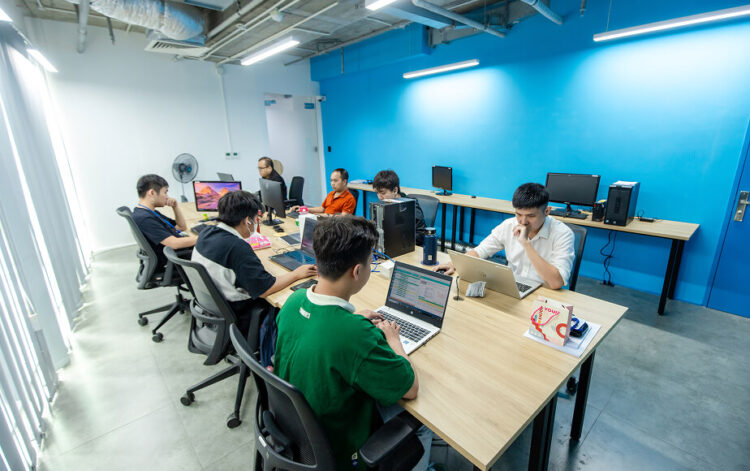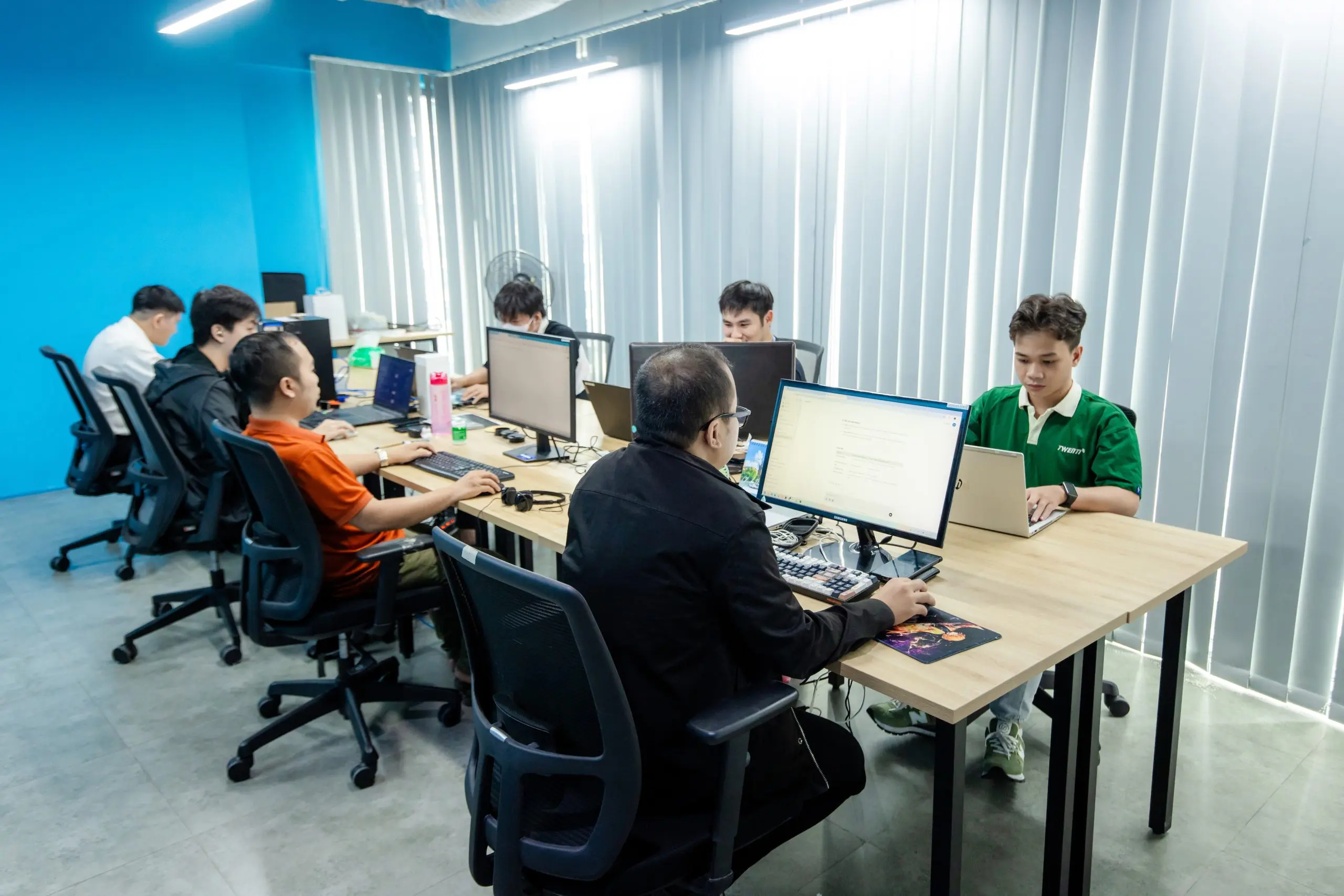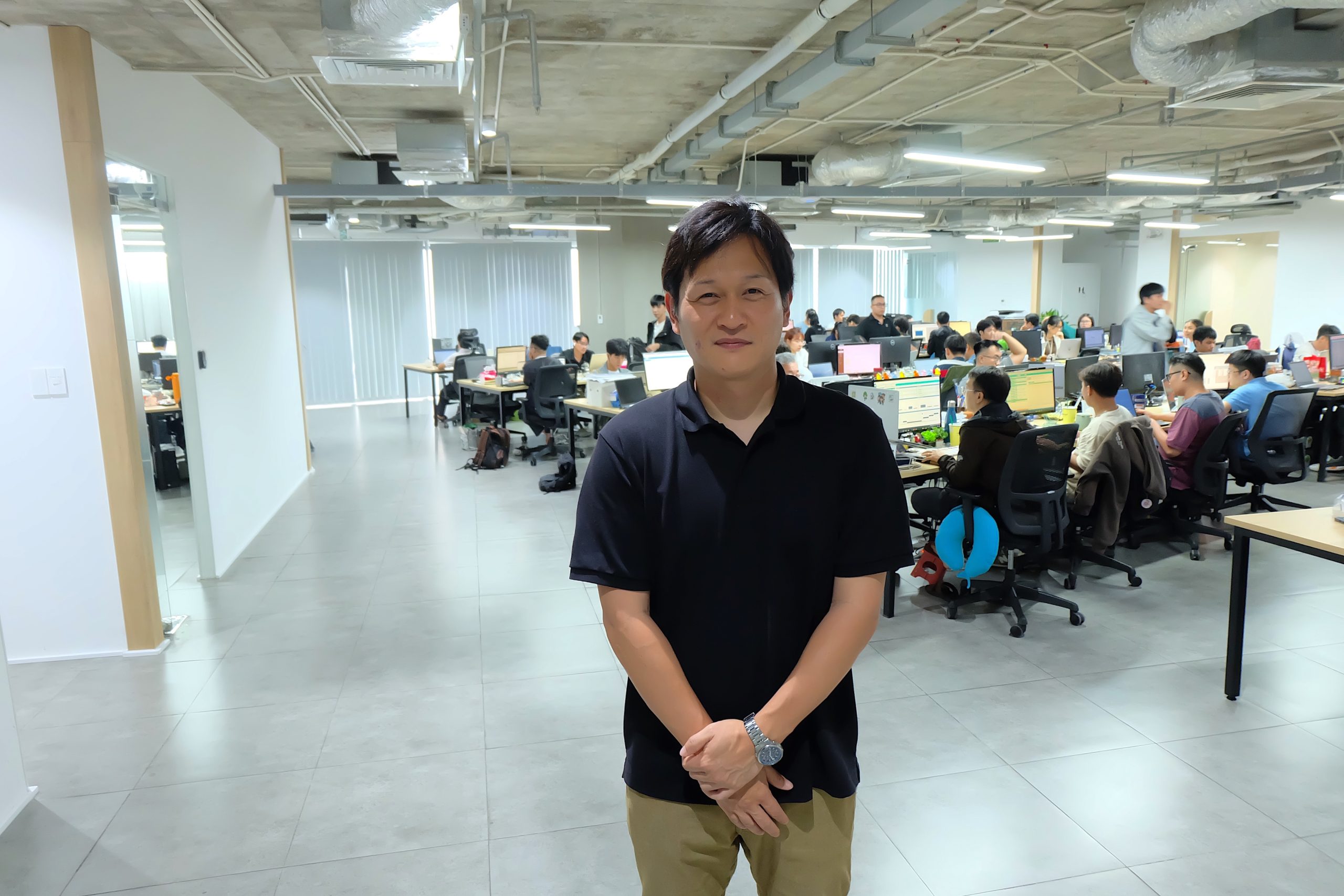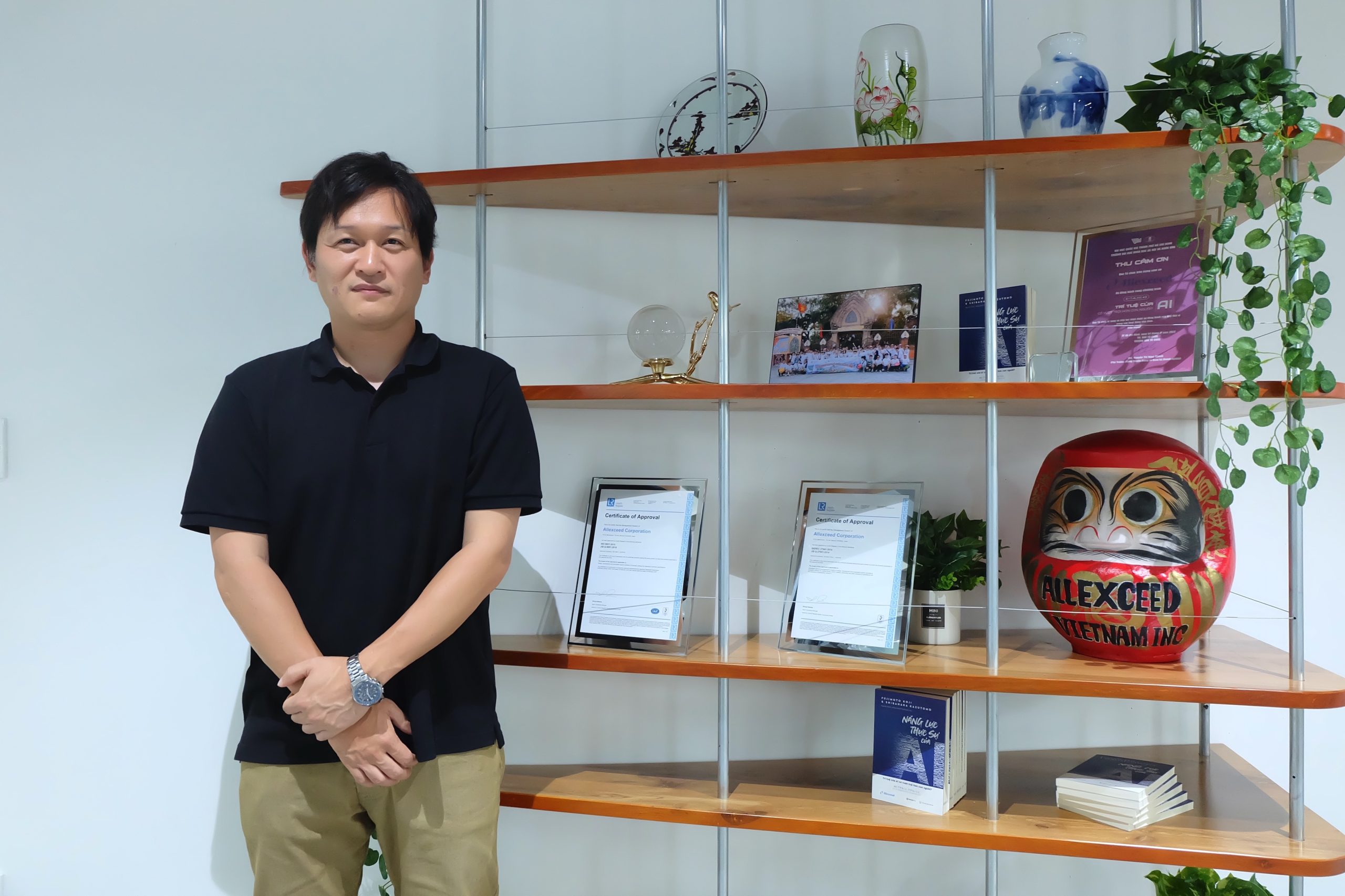2025/10/01
Share
Do we even need the word ‘offshore’ anymore? Building a development model with ALLEXCEED VIETNAM (Part 2)
In the previous part, we discussed ALLEXCEED VIETNAM’s actual development practices and projects. From here, we’ll look at ALLEXCEED VIETNAM’s offshore development more broadly.
Peace of mind and trust let us outsource for the long haul

Could you share why you’ve continued to entrust development to ALLEXCEED VIETNAM for so long?
There are several reasons, but the biggest is the sense of reassurance and trust in their system development.
As mentioned earlier, the IT Communicator’s strong facilitation in meetings and the steady support from the Japanese lead bring a level of assurance that clearly stands apart from other vendors.
Speaking of reassurance, even when specification changes or additional requirements arose mid-project, your team consistently took a positive, proactive stance. Rather than drawing a hard line—“that’s out of scope”—you first explored with us how it could be made feasible. That collaborative posture is crucial to building a long-term partnership.
Being a Japan-affiliated offshore company with experience in the Japanese development style is also a major advantage. We highly value your ability to align with our tightly structured waterfall approach.
We operate under a lab-type contract with a fixed team. Over time, each member has grown, strengthened their technical skills, and as a result, they’ve become able to flexibly support our various services—such as projects in different languages and domains.
There are no constraints like “we only do this language” or “we only handle this field.” That flexibility toward diverse specifications is a key reason we keep coming back.
For repeat engagements of similar projects, reliability only increases. On the client side, we’ve gradually internalized “how best to engage ALLEXCEED VIETNAM,” which in turn has reinforced trust.
On efficiency and optimization—perhaps a slightly different nuance—our own team has learned how to request work from you. As our shared understanding grows—“what upstream outputs enable ALLEXCEED to work most efficiently”—we’ve felt productivity rise on both our in-house team and the ALLEXCEED team.
What do you expect from ALLEXCEED VIETNAM going forward?
Until now, our main requests have been migration of relatively old systems; going forward, we’d like to outsource development that includes detailed design as well.
We’ll also need development aligned with market trends, including new technologies and AI utilization. As development methods themselves keep evolving, we hope to tackle those areas together.
Recently, there’s strong pressure to “get products out quickly.” Not just short delivery times—projects that “release in smaller lots, more frequently” seem to be increasing.
So rather than the conventional “waterfall with locked-down specs and a single batch build,” the mainstream will be smaller, faster, and more frequent releases. That means offshore will also require different modes of collaboration. Given the physical and language distances, there’s more chance of friction than with an in-house team sitting side by side. How to catch up and coordinate within that context—that’s the challenge ahead.
Exactly. Doing offshore the same old way will eventually hit a wall.
From here on, it’s essential that “you gain a deeper understanding of our product.” Instead of merely executing waterfall-style phases, we need you to be involved with the stance of co-building the product. Otherwise, outsourcing development will become difficult to sustain.
Conversely, if we collaborate closely in that way, we believe you can contribute strongly to our business.
Communication design matters even more in offshore development
You’ve done offshore for many years. What do you think is needed to make it successful?
It’s critical to define and separate the scope of what is delegated. To do that, the ordering side must invest time in thorough explanations and take actions that eliminate misalignment in understanding.
It’s also important to jointly establish rules and adhere to them—build mechanisms that ensure compliance. For example, “we’ll update the design document later” should be discouraged.
Above all, I believe the most fundamental need is ingenuity in communication. Even the small things—how to run meetings, how to submit requests—benefit from thoughtful design. Discussion can be difficult; without preparation, it’s hard to have a productive debate. Between two Japanese companies you might be able to discuss ad-hoc, but with offshore that’s rarely the case. This isn’t unique to your company; it applies to offshore in general.
It’s not that “discussion is difficult”; it’s that “we need to rethink how we discuss.” Meeting design needs creativity—for instance, “who should join this agenda,” or “for status updates, a templated exchange is fine.” Going into meetings without clarity is particularly problematic in offshore development.
Ideally, that should be the norm within Japan as well.
Especially with offshore, unless you start with the premise that such things won’t happen naturally, it won’t go well. If you’re going to work with offshore in earnest, it’s better to define—even down to the reporting format—before proceeding.
There are truly many ways to hone communication…
Agreed. It’s absolutely necessary—communication design is indispensable.
If you outsource without understanding that, both sides end up unhappy.
Among Japanese, some ambiguity can be tolerated; in offshore, certain things must be explicit
Does communication differ by country? Compared with China—for example, language—might working with China be easier?
Generally speaking, Chinese engineers are said to have higher Japanese language proficiency, but our honest impression is that in both communication and development, there isn’t much difference between your company and Chinese firms. That said—due to our internal circumstances—Chinese partners sometimes station a person in our office, which can make things a bit easier.
Ultimately, in external outsourcing, the challenge is how to operate as a team within a division-of-labor model. The improvements we mentioned—meeting structures and modes of collaboration—are applied similarly everywhere.
It’s not about China being better or worse, nor Vietnam being better or worse. What matters is collaborating as one team to build a single product—even in an outsourced setup. That’s why team building and ingenuity to build as a team are needed.
In Japan as well, we should do these things; but among Japanese, projects can proceed with some ambiguity. There’s a cultural wall here, which creates areas that must be made explicit.
In other words, it’s something to be mindful of wherever you outsource—but with offshore, you need to be especially deliberate.
Japan’s “reading the air” culture is high-context. Overseas, the culture is to communicate clearly and explicitly. The difference likely stems from that.
Therefore the ordering side must be intentional. Not merely handing over a specification and placing a request, but thinking through how to help the partner understand our product and our asks.
It’s essential that the ordering party and the offshore development company truly operate as one team. Domestic outsourcing already spans organizational boundaries; offshore adds national borders. That calls for even more creativity in communication. If we achieve that, offshore development becomes a significant advantage in system delivery.
We’ve never felt a handicap “because it’s offshore”
Lastly, from your perspective, what are ALLEXCEED VIETNAM’s strengths?
First, you’re a Japan-affiliated offshore company with experience understanding Japanese development styles and culture.
It may sound commonplace, but it’s critical. For example, how you read documentation and what deliverables we expect—you have deep understanding in those areas.
Frankly, it’s on par with hiring a Japanese development firm, and in terms of quality, we’ve never felt any handicap “because it’s offshore.”
To the point that the word “offshore” itself might be unnecessary. Alongside that, you have Japanese staff stationed locally and strong IT Communicators—another reason to recommend you.
We look forward to continuing to support each other in growing our businesses.
Thank you. ALLEXCEED VIETNAM will continue to support your company’s growth. Thank you for the valuable insights!




